Mercedes Citan vs Vauxhall Zafira Life – Differences & prices compared
Compare performance, boot capacity, efficiency and price at a glance.
Find out which car is the better choice for you – Mercedes Citan or Vauxhall Zafira Life?
Costs and Efficiency:
Price and efficiency are often the first things buyers look at. Here it becomes clear which model has the long-term edge – whether at the pump, the plug, or in purchase price.
Mercedes Citan has a clearly advantage in terms of price – it starts at 22400 £, while the Vauxhall Zafira Life costs 36000 £. That’s a price difference of around 13548 £.
Fuel consumption also shows a difference: Mercedes Citan manages with 5.20 L and is therefore noticeable more efficient than the Vauxhall Zafira Life with 7.10 L. The difference is about 1.90 L per 100 km.
In terms of energy consumption, the advantage goes to the Mercedes Citan: with 19.30 kWh per 100 km, it’s clearly perceptible more efficient than the Vauxhall Zafira Life with 24.70 kWh. That’s a difference of about 5.40 kWh.
As for range, the Vauxhall Zafira Life performs somewhat better – achieving up to 347 km, about 67 km more than the Mercedes Citan.
Engine and Performance:
Power, torque and acceleration say a lot about how a car feels on the road. This is where you see which model delivers more driving dynamics.
When it comes to engine power, the Vauxhall Zafira Life has a noticeable edge – offering 180 HP compared to 131 HP. That’s roughly 49 HP more horsepower.
In acceleration from 0 to 100 km/h, the Vauxhall Zafira Life is distinct quicker – completing the sprint in 10.60 s, while the Mercedes Citan takes 13 s. That’s about 2.40 s faster.
In terms of top speed, the Vauxhall Zafira Life performs slight better – reaching 185 km/h, while the Mercedes Citan tops out at 183 km/h. The difference is around 2 km/h.
There’s also a difference in torque: Vauxhall Zafira Life pulls noticeable stronger with 400 Nm compared to 270 Nm. That’s about 130 Nm difference.
Space and Everyday Use:
Whether family car or daily driver – which one offers more room, flexibility and comfort?
Seats: Vauxhall Zafira Life offers evident more seating capacity – 8 vs 5.
In curb weight, Mercedes Citan is clearly perceptible lighter – 1556 kg compared to 1953 kg. The difference is around 397 kg.
In terms of boot space, the Mercedes Citan offers significantly more room – 551 L compared to 0 L. That’s a difference of about 551 L.
In maximum load capacity, the Vauxhall Zafira Life performs clearly perceptible better – up to 4900 L, which is about 1240 L more than the Mercedes Citan.
When it comes to payload, Vauxhall Zafira Life clearly perceptible takes the win – 914 kg compared to 644 kg. That’s a difference of about 270 kg.
Who wins the race?
The Vauxhall Zafira Life proves to be wins by a narrow margin and therefore becomes our DriveDuel Champion!
Vauxhall Zafira Life is the better all-rounder in this comparison.
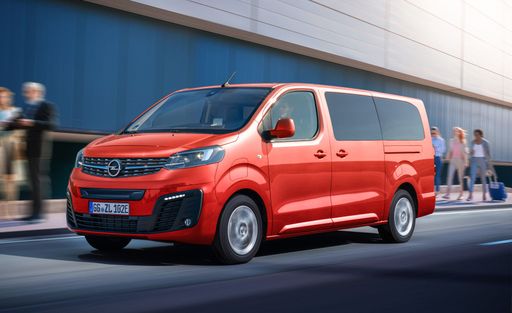
Vauxhall Zafira Life
Mercedes Citan
The Mercedes-Benz Citan High Roof Van is a versatile option in the compact van segment, offering a perfect blend of practicality and style. Its sleek design combined with the brand's hallmark attention to detail ensures that it stands out on city streets and motorways alike. Inside, the spacious cabin provides ample room for passengers or cargo, making it an ideal choice for both urban professionals and families seeking flexibility.
detailsVauxhall Zafira Life
The Opel Zafira Life offers a versatile and comfortable driving experience, making it an ideal choice for families and group outings. Its spacious interior is thoughtfully designed, ensuring ample room for passengers and luggage alike. Modern features and a sleek exterior design give it a contemporary edge while maintaining practicality for everyday use.
details @ Stellantis
@ Stellantis
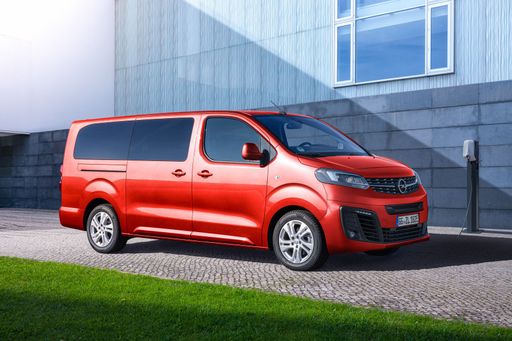 @ Stellantis
@ Stellantis
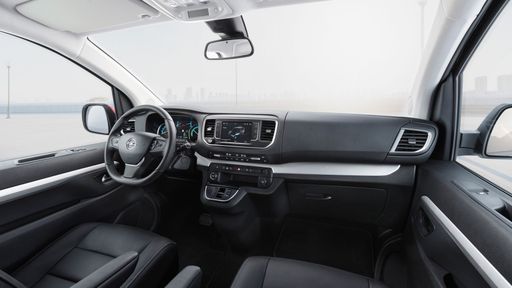 @ Stellantis
@ Stellantis
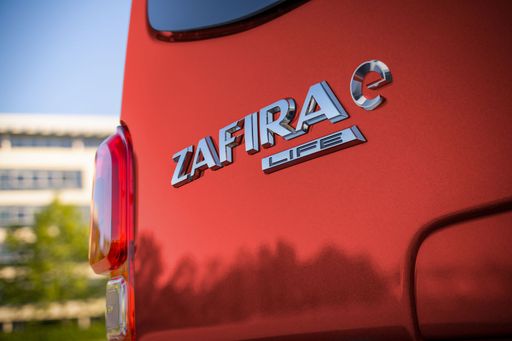 @ Stellantis
@ Stellantis
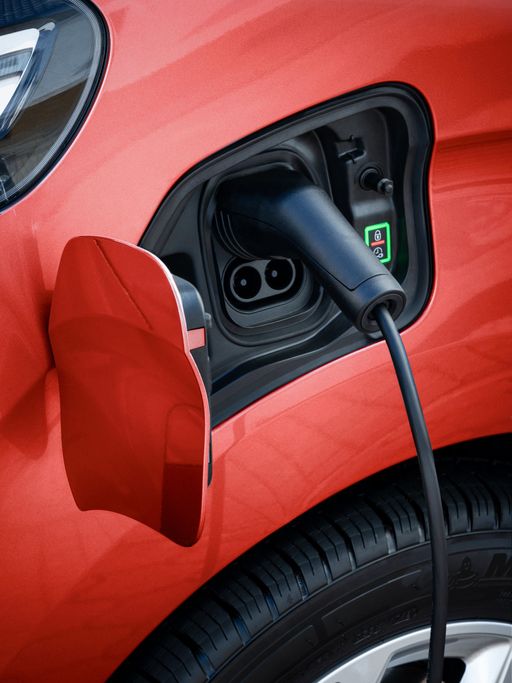 @ Stellantis
@ Stellantis

|
|
|
|
|
Costs and Consumption |
|
|---|---|
|
Price
22400 - 30100 £
|
Price
36000 - 53200 £
|
|
Consumption L/100km
5.2 - 7.4 L
|
Consumption L/100km
7.10 L
|
|
Consumption kWh/100km
19.3 - 20.7 kWh
|
Consumption kWh/100km
24.7 - 24.8 kWh
|
|
Electric Range
265 - 280 km
|
Electric Range
220 - 347 km
|
|
Battery Capacity
45 kWh
|
Battery Capacity
-
|
|
co2
0 - 167 g/km
|
co2
0 - 186 g/km
|
|
Fuel tank capacity
54 L
|
Fuel tank capacity
70 L
|
Dimensions and Body |
|
|---|---|
|
Body Type
High Roof Estate
|
Body Type
Bus
|
|
Seats
5
|
Seats
8
|
|
Doors
5
|
Doors
5
|
|
Curb weight
1556 - 2010 kg
|
Curb weight
1953 - 2240 kg
|
|
Trunk capacity
0 - 551 L
|
Trunk capacity
0 L
|
|
Length
4498 - 4922 mm
|
Length
4981 - 5331 mm
|
|
Width
1859 mm
|
Width
2010 mm
|
|
Height
1811 - 1830 mm
|
Height
1890 mm
|
|
Max trunk capacity
1979 - 3660 L
|
Max trunk capacity
4200 - 4900 L
|
|
Payload
485 - 644 kg
|
Payload
850 - 914 kg
|
Engine and Performance |
|
|---|---|
|
Engine Type
Petrol, Diesel, Electric
|
Engine Type
Electric, Diesel
|
|
Transmission
Manuel, Automatic
|
Transmission
Automatic
|
|
Transmission Detail
Manual Gearbox, Dual-Clutch Automatic, Reduction Gearbox
|
Transmission Detail
Reduction Gearbox, Automatic Gearbox
|
|
Drive Type
Front-Wheel Drive
|
Drive Type
Front-Wheel Drive
|
|
Power HP
95 - 131 HP
|
Power HP
136 - 180 HP
|
|
Acceleration 0-100km/h
13 - 15.5 s
|
Acceleration 0-100km/h
10.6 - 14.3 s
|
|
Max Speed
132 - 183 km/h
|
Max Speed
130 - 185 km/h
|
|
Torque
200 - 270 Nm
|
Torque
260 - 400 Nm
|
|
Number of Cylinders
4
|
Number of Cylinders
4
|
|
Power kW
70 - 96 kW
|
Power kW
100 - 132 kW
|
|
Engine capacity
1332 - 1461 cm3
|
Engine capacity
2184 cm3
|
General |
|
|---|---|
|
Model Year
2021 - 2024
|
Model Year
2024 - 2025
|
|
CO2 Efficiency Class
F, E, A
|
CO2 Efficiency Class
A, G
|
|
Brand
Mercedes-Benz
|
Brand
Vauxhall
|
What drive types are available for the Mercedes Citan?
Available configurations include Front-Wheel Drive.
The prices and data displayed are estimates based on German list prices and may vary by country. This information is not legally binding.
